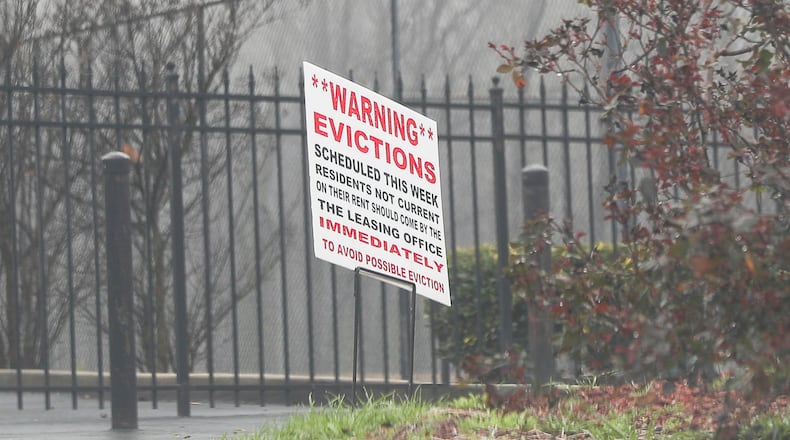The state Senate passed a bill Thursday that empowers renters when they're threatened with eviction in retaliation for complaining about deplorable housing conditions, such as roaches, rats and mold.
Senators approved the proposal 34-16, and it now returns to the state House for a final vote. The House previously passed a different version of the bill.
The legislation, House Bill 346, makes it easier for renters to win court cases and remain in their homes. Landlords who wrongfully tried to evict tenants would be responsible for paying them one month's rent, plus $500 and legal costs.
"They're very scared to complain to anyone because they're afraid they'll be evicted," said state Rep. Sharon Cooper, a Republican from Marietta and the bill's sponsor. "This bill sends a message that you can't just treat people lower than human beings, like the scum of the earth."
Forty-one other states already have similar laws against retaliatory evictions, she said.
Apartment owners feared that if the bill passes, they couldn't pursue legitimate evictions against renters who fail to pay rent, smoke in prohibited areas, leave trash in hallways or exceed occupancy limits, said David Metzger, a Decatur real estate attorney who mostly represents landlords.
Problems with unkempt properties should be policed by county and city code enforcement officers, not through the court system, Metzger said.
“This bill will not help address the underlying conditions that everyone is concerned about,” Metzger said during the Senate hearing. “It doesn’t require the landlords to fix these problems.”
But advocates for renters said they need a way to hold slumlords accountable.
Many tenants feel trapped in substandard housing when they’re threatened with eviction, said Pam Kraidler of the Health Law Partnership, which provides free legal services to low-income families. Renters can either keep quiet or get kicked out, left trying to find different housing that they can afford.
“Many of our clients live in rental housing that makes them sick,” Kraidler said. “No one should have to live in housing like this. … Their landlords often threaten if they’re going to cause problems, they’re going to evict them. They just don’t have any power.”
Even when complaints reach code enforcement officers, those cases are often dropped after tenants are evicted, Cooper said. Then landlords can find a new tenant without making repairs.
Substandard housing conditions cause asthma attacks and sickness, she said. Children miss school and their parents miss work, perpetuating a cycle of poverty.
“A lot of people in our state don’t have any other options,” Cooper said. “The people that this will protect is poor people and unprotected people.”
About the Author
Keep Reading
The Latest
Featured




